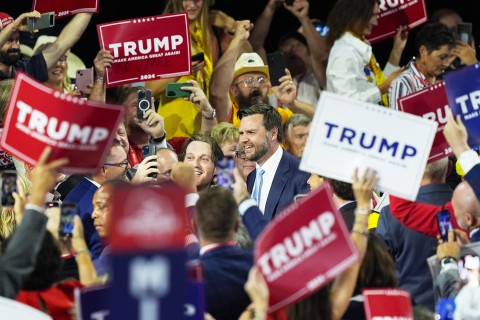U.S. Muslims worry about fall-out from Libya attacks
c. 2012 Religion News Service
(RNS) Muslim Americans condemned violence in Egypt and Libya that left four Americans dead, but remain concerned that the deaths could rekindle anti-Muslim sentiment just as post-9/11 resentment was starting to ebb.
U.S. Ambassador to Libya Christopher Stevens and three embassy workers were killed Tuesday (Sept. 11) when fundamentalist protestors attacked the U.S. consulate in Benghazi, Libya, in response to a low-budget film that attacks Islam's Prophet Muhammad, reportedly made by an Israeli real estate developer who lives in California.
Imam Talal Eid, the Islamic chaplain at Brandeis University near Boston and a former member of the U.S. Commission on International Religious Freedom, predicted the violence would lead to "more resentment" against Muslims, who he criticized for not doing enough against terrorism.
"Muslim Americans never initiated a big demonstration against terrorism and people of their own faith who commit these crimes," Eid said. "The leaders of American Muslims should initiate a big demonstration to show that Muslims take the issue of terrorism seriously, otherwise people will ask what are those Muslims doing."
Nasser Weddady, the civil rights outreach director at the American Islamic Congress, agreed that protests would be useful.
"We could, as a community, do what the Libyans did, and take to the streets and protest," said Weddady, referring to the Libyan revolution that overthrew dictator Moammar Gadhafi last year.
"We have to work harder to let people know that Muslims in America are well integrated into American life, and thriving, and that we have religious freedom here," said Salam Al-Marayati, president of the Muslim Public Affairs Council.
Imam Mohamed Magid, president of the Islamic Society of North America, acknowledged that the violence could hurt relations between Muslims and non-Muslims, but said improved relations were also possible.
"The reaction of the faith community, by standing together, has been fantastic," he said. "I'm hoping this could bring people together and not divide us the way the filmmakers intended."
Some Muslims said the violence was not spontaneous, but rather orchestrated by Islamic fundamentalists. "It's how they try to stay relevant, by manipulating people's religious sentiments and anti-American feelings," said Weddady.
"This is no coincidence, and I suspect the work of the public relations units of sophisticated terrorist groups who have been spoiling for a fight," said Ebrahim Moosa, a professor of Islamic studies at Duke University. "It might be time that religious leaders in the Muslim world desist from playing the blasphemy card if they do not wish to hand a victory to provocateurs who are hell-bent on destabilizing their societies."





